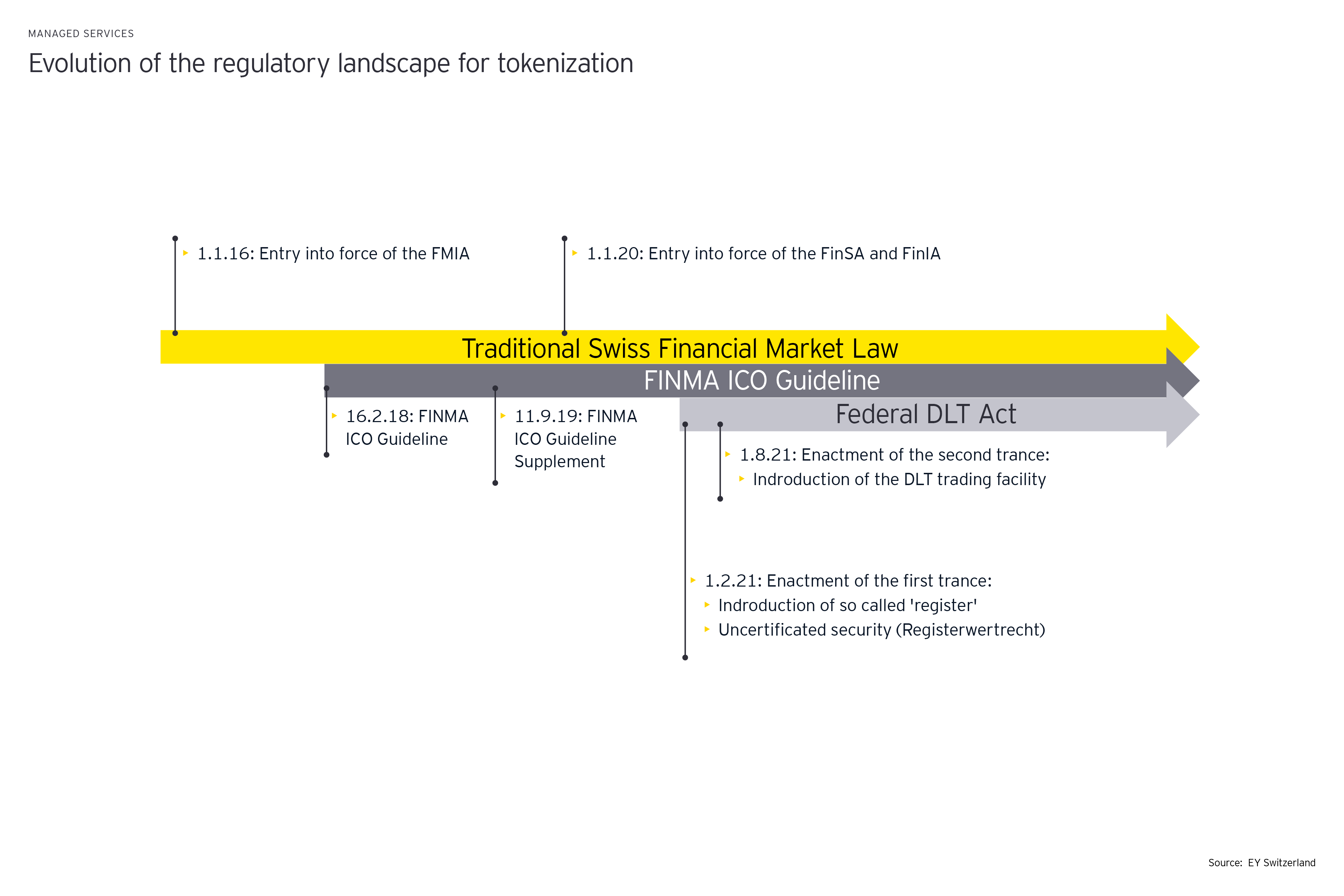EY refers to the global organization, and may refer to one or more, of the member firms of Ernst & Young Limited, each of which is a separate legal entity. Ernst & Young Limited is a Swiss company with registered seats in Switzerland providing services to clients in Switzerland.
How EY can help
-
EY Managed Services revolutionizes your noncore, but board-critical activities with easy-to-integrate solutions. Find out more.
Read more
Security tokens under Swiss financial market law
- Regulatory classification: Instead of “security token”, the Swiss regulator FINMA uses the term "asset token”. Such tokens represent assets like debt or equity claims on the issuer, and promise, e.g. a share in future company earnings or future capital flows. In terms of their economic function, they are thus analogous to equities, bonds or derivatives. Tokens which enable physical assets to be traded on the DLT/Blockchain also fall under this category. A token that qualifies as an asset token is classified as a security under Swiss financial law.
- Application of prospectus requirements: The Swiss Financial Services Act (FinSA) has introduced a general duty to publish a prospectus for securities. However, there are numerous exemption provisions, e.g. for offerings to (i) professional investors, (ii) less than 500 investors, (iii) investors that invest more than CHF 100’000, or (iv) which are limited to total amount of CHF 8 Mio calculated over 12 months.
- KYC/AML requirements: According to FINMA, issuers of asset tokens do generally not fall under the Swiss AML regulation. However, this must be asse
Key Advantages of STOs in Switzerland
Switzerland is one of the most advanced countries in the world in terms of DLT adaption and is an international hub for innovative companies comprising a wide network and profound expertise. The strong collaboration between the DLT ecosystem and the conventional finance industry helps to promote a sustainable growth of STOs in Switzerland.
- Lower cost: By eliminating numerous intermediaries and processes, the administrative burden and cost of each step is significantly lower, thus resulting in cheaper access to capital
- Easy and swift transferability: DLT-based settlement drastically increases transaction speed so that tokens and shares can be transferred within a minute - without paperwork and even digital/written signatures
- Full automation: Automated processes, such as fully automated execution of corporate actions (e.g. dividends or interest payments) or approval processes from existing investors
- Global investor reach: Digitized shares can be easily transferred globally 24/7 and location-independent with a simple investor onboarding, allowing investor outreach beyond established networks
- Enforceable rights: Token holders act as shareholders with enforceable rights, incl. dividend and voting rights
- Opening of market access and opportunities: Lower entry barriers to capital markets and access to new investment opportunities with options for smaller ticket size as well as portfolio diversification (incl. previously hardly investable assets)
- Fast incorporation: The whole procedure is accelerated by digitization of the processes as well as lighter regulatory requirements (FINMA no-action letter or tax ruling not required)
- Optimized corporate housekeeping: Digital corporate housekeeping including real-time token holder/ shareholder registry for optimizing the investor communication




